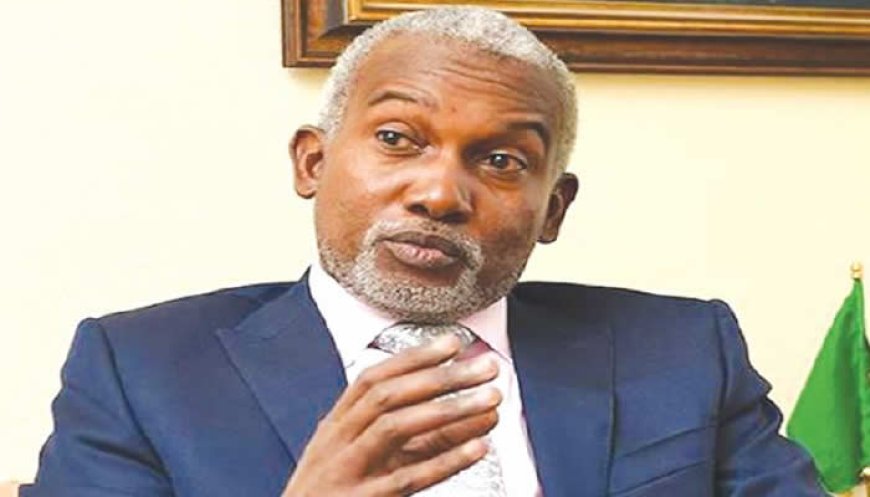Minister warns against economic dependence on former colonial powers

The Minister of Foreign Affairs and Chairman of the Economic Community of West African States Council of Ministers, Ambassador Yusuf Tuggar, has warned against continued economic dependence on former colonial powers.
Tuggar gave the warning at the opening ceremony of the 94th ordinary session of the Council of Ministers on Thursday in Abuja.
The two-day session is focused on deepening economic integration and tackling key developmental challenges in the West African subregion.
Addressing ministers and delegates gathered, Tuggar stated, “For newly independent African countries, if you stay alone and isolated from your neighbours, you remain dependent on the former colonial master, forever consigning yourself to being an exporter of agricultural cash crops and raw materials to the metropolis.”
The chair urged West African nations to reclaim control of their destinies through regional trade, joint infrastructure, and collective self-reliance.
“Conversely,” he continued, “if you trade freely with your neighbours, develop infrastructure jointly to strengthen that trade, you develop indigenous industries, collective self-reliance, and take control of your destinies.”
The minister reminded delegates of the ideological roots of ECOWAS and similar African regional blocs, noting that they were “borne out of our yearning for economic decolonisation and not the other way round.
The minister called on member states to revisit the founding purpose of ECOWAS, not simply as a bureaucratic institution but as a revolutionary response to the structural limitations imposed by colonial legacies.
As ministers prepared to deliberate on a broad agenda covering trade, infrastructure, health, education, agriculture, and institutional reform, Tuggar urged a collaborative spirit.
“I invite us all to approach our discussions with an ethos of collegiality, compromise, and flexibility with a broader vision for a strong, united, and resilient Regional Economic Community,” he said.
“This session should be defined not only by the depth of our deliberations,” he added, “but also by the courage of our decisions.”
In his opening address, the President of the ECOWAS Commission, Dr. Omar Touray, acknowledged ongoing institutional efforts to advance regional integration and presented key agenda items for the session, including trade liberalisation, industrial development, and responses to emerging global economic shifts.
Touray drew particular attention to the persistent issue of non-tariff barriers, describing them as a “perennial obstacle to boosting regional trade, investment, industrialisation, competitiveness, and economic growth of our region.”
Despite numerous initiatives, including the Presidential Task Force on the Trade Liberalisation Scheme, the problem persists.
In May, I travelled by road from Lagos to Cotonou to see the situation along the regional corridor and the joint border post established at the Seme/Krake border between Nigeria and Benin. I saw firsthand the challenges posed by non-tariff barriers along the corridor.
“We must do everything to put an end to this and facilitate economic exchange across the region,” he said.
The session is reviewing recommendations from the recent Joint Meeting of ECOWAS Ministers of Trade and Industry.
Among the proposals are the adoption of a regional Trade and Investment Promotion Strategy and accelerated ratification of key agreements, including the WTO Fisheries Subsidy Agreement and the African Continental Free Trade Area.
Also under review is a proposed Cooperation Agreement between the ECOWAS Regional Competition Authority and Member States to enforce competition and consumer protection rules.
Touray urged countries to act swiftly, saying, “The ministers have considered the Cooperation Agreement between ERCA and member states… and requested member states to take necessary measures for its signature by the end of June 2025.”
On inter-regional and international trade, he said ministers also discussed the West Africa–European Union Economic Partnership Agreement and implications of new US tariff policies.
The ministers recommended further national consultation with key stakeholders, in particular the private sector, to propose a way forward,” he added.
Addressing regional peace and security, the ECOWAS commission president announced a shared understanding with Burkina Faso, Mali, and Niger to tackle terrorism and violent extremism together.
“We have secured an understanding with Burkina Faso, Mali, and Niger on the need to work together to build confidence to collectively confront terrorism and violent extremism,” he said.
He also shared updates on dialogue with Guinea. “With Guinea, discussions have resumed on political transition, and we are working to create the right environment for the people of Guinea to determine the political future of their country,” Touray noted.

 admin
admin 


